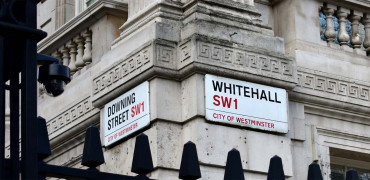We’ve written before on The Hub about the increasing importance of Environmental, Social and Governance (ESG) criteria in the world’s boardrooms as corporations realise the need to clearly demonstrate their ‘green’ credentials and show their careful plans to tackle the world’s biggest problem – climate change.
But recent news about shareholder rebellions at oil giants ExxonMobil and Chevron points to pressure coming from unseen quarters for some industries that may not be appearing to move fast enough.
Exxon faced a coup from hedge fund activists who managed to replace two board members with their own candidates in a move designed to increase the pace in the adoption of a much greener strategy.
Meanwhile Chevron shareholders rebelled by voting 61% in favour of a motion to force the group to cut its carbon emissions. The proposal from Dutch campaign group and green shareholders ‘Follow This’ is seen as a ‘paradigm shift’ in the battle against climate change.
The time for ‘greenwash’ is clearly over
Lacking ambition and credibility
And it’s not just in the US that shareholder power is changing things as Royal Dutch Shell discovered last week, when Britain’s biggest investment fund manager, Legal & General Investment Management, joined a shareholder revolt over the oil giant’s carbon-cutting plans, saying that they lacked both the ambition and the credibility required to help tackle global warming.
And this surely is the point as any company must back up ‘warm words’ in its Annual Report with solid action and verifiable plans to move the business to a much more sustainable place.
The global pandemic may have dominated the headlines over the past year but the situation has also allowed people and businesses to question the old routines and ‘norms’.
Last October for example, the FT reported that American multinational consumer goods corporation, Procter & Gamble faced its own investor rebellion over environmental concerns.
The time for ‘greenwash’ is clearly over and, as the rebellions in the boardrooms of these household names clearly demonstrate, it is now time for action that can be seen, with a visible roadmap that shows how any company is making a difference and helping reduce carbon emissions.
Scary stuff
And it’s easy to see why this is necessary, as the latest reports into climate change show that we are in grave danger of hitting dangerous temperature limits much sooner than initially predicted.
Reports, such as this one on the BBC state that by 2025 there's a 40% chance of at least one year being 1.5C hotter than the pre-industrial levels.
Just to put that in context, the 2015 Paris climate accord set a goal of keeping temperature rises under that threshold to prevent the worst effects of global warming.
Scientists have long warned that any temperature rises above 1.5C will see more extreme heatwaves, rainstorms, wild fires, water shortages, and drought.
The analysis is based on modelling by the UK Met Office and climate researchers in 10 other countries including the US and China.
An underestimation
As if that wasn’t grim enough to scare any boardroom into action, hot on the heels of this comes news that says we may have been underestimating global warming for 40 years or more.
The research by scientists at the Lawrence Livermore National Laboratory (LLNL) shows that modelling of satellite measurements of temperature in the troposphere (the lowest atmospheric region) may have been wrongly interpreted for decades.
Whilst even the scientists say that it is currently difficult to see which of their modelling of the relationships between tropical temperature and moisture is more credible, the analysis does reveal that several of the datasets appear to be at odds with other, independently measured complementary variables.
Don’t panic
Fans of a well-known Douglas Adams book, radio and TV series, and even a poor 2005 Hollywood film, will immediately recognise the phrase ‘Don’t Panic’ but if it doesn’t mean much to you, go read the Hitchhikers Guide to the Galaxy, I’d heartily recommend it.
For me at this point though it offers the best advice for all of us as individuals.
The world does appear to be starting to (finally) get to grips with the urgent crises facing us all. The G7 will meet in Cornwall this month and world leaders will gather in Glasgow at COP26 in November to discuss and commit to stringent carbon emissions targets.
Government is therefore trying to do something and businesses are either embracing ESG or being forced to by their investors.
Whilst that does offer hope that we can get our act together as a species, both you and I can also make a difference if we look at the way we consume and find little ways to make our lives less carbon intensive.
It doesn’t have to be hard and there are small steps you can make today that will make a difference.
Russell Jones is content and communications manager



